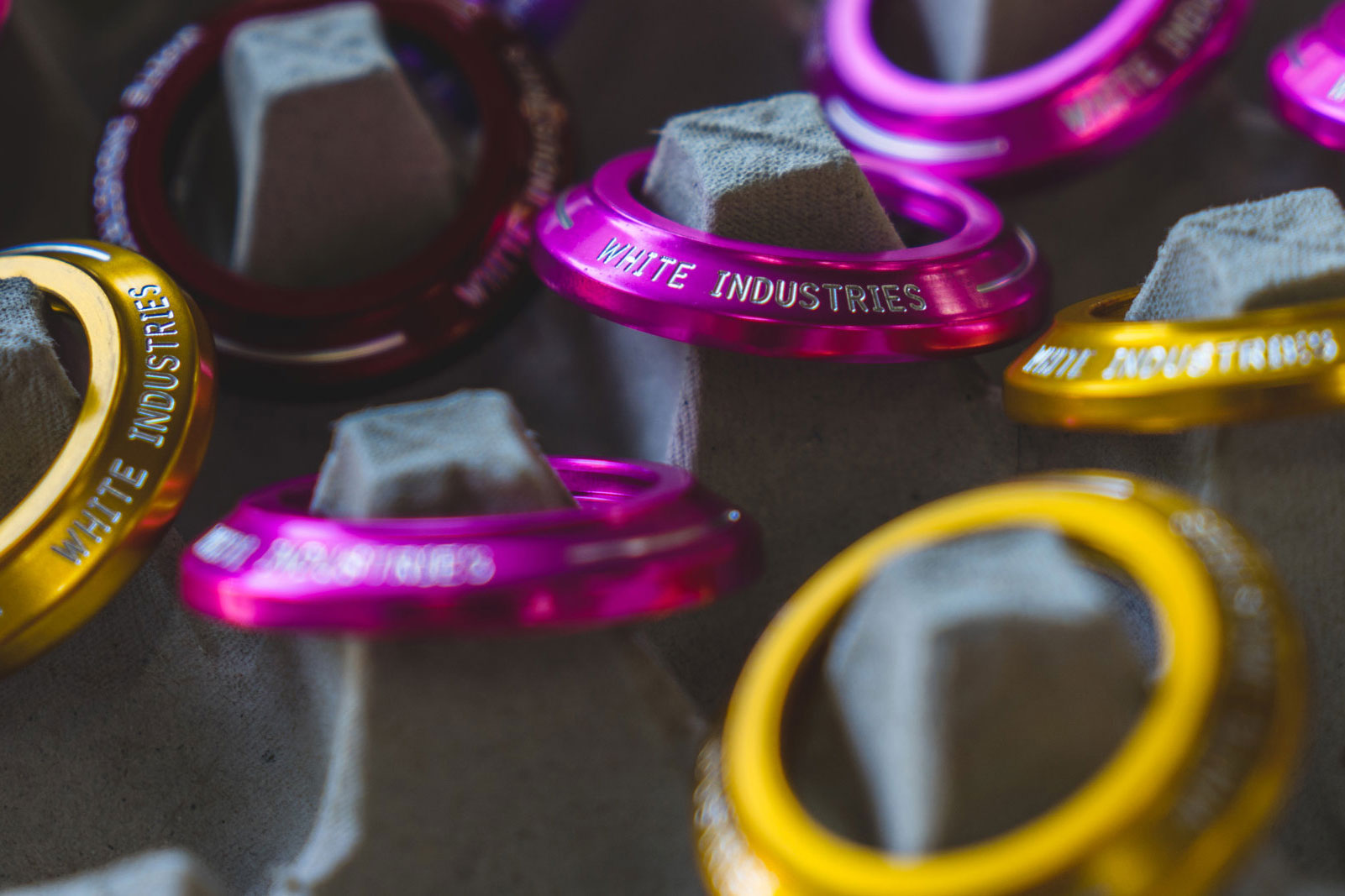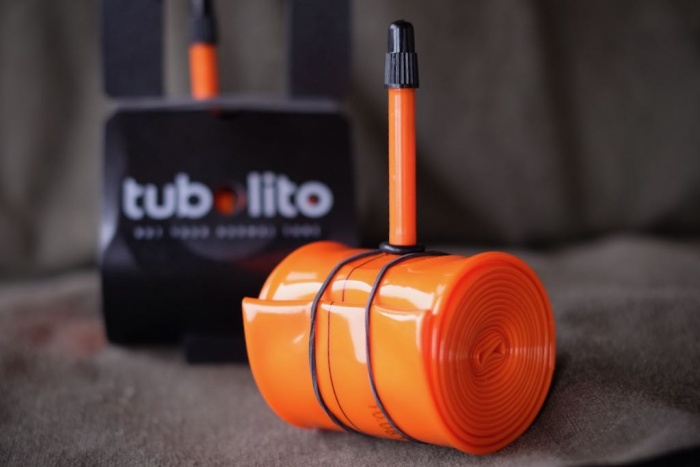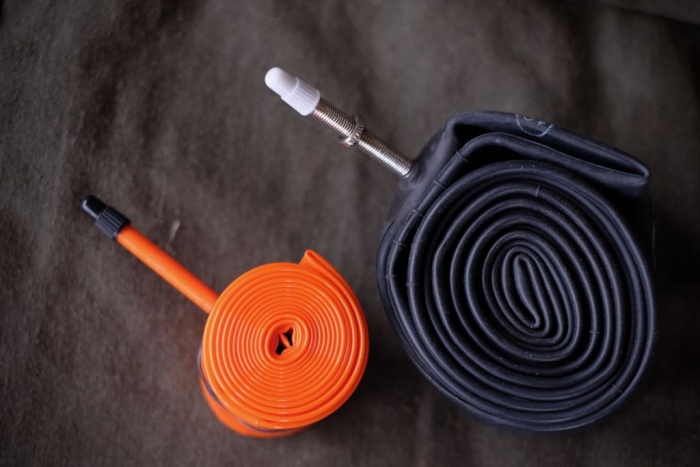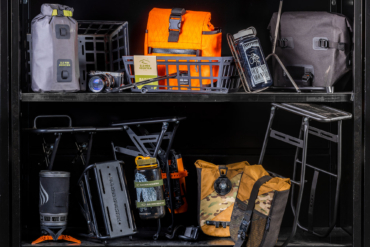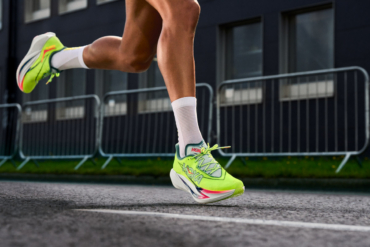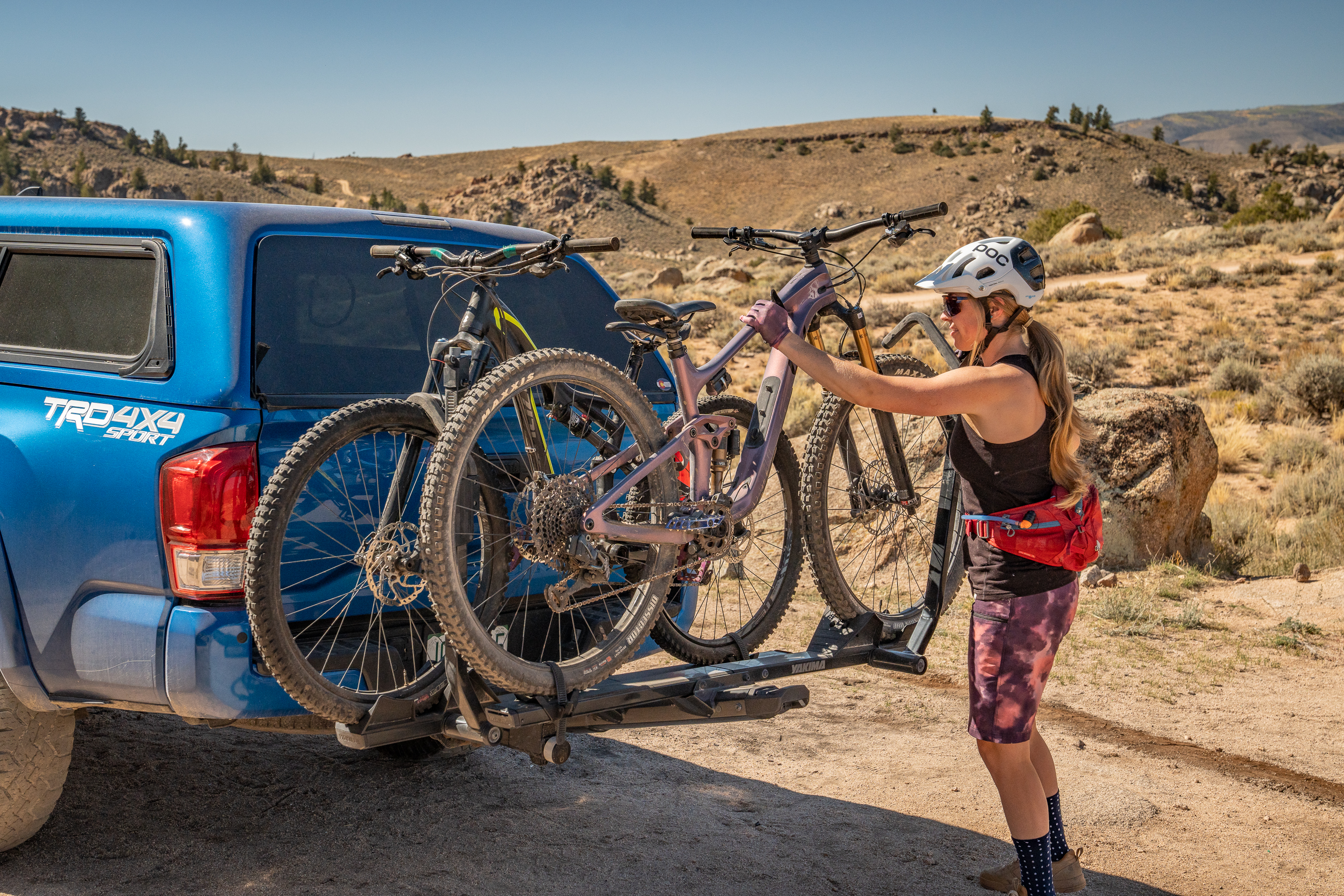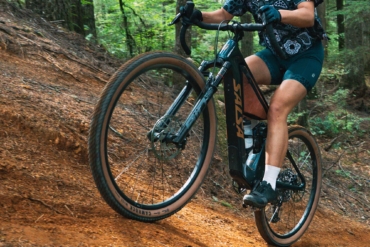Lighter, faster, stronger: The Austrian-made Tubolito Tubo puts mobile phone speaker tech in your bicycle tires.
It is the first major reboot of the bicycle tube in over a century. While developing solutions for mobile phone speakers, Tubolito founders Christian Lembacher and Akos Kertesz worked with a variety of ultra-thin and durable membranes. As avid mountain bikers they saw the potential applications within a tire.
After an extensive period of research and development, Tubolito Tubo was born. But, after 100 years of bike tires, is it worth the wait?
Review: Tubolito Tubo
Before we dive in, it’s worth noting that the Tubolito Tubo isn’t available in the United States just yet. You can pick it up in Europe and on amazon.uk, but those in the Americas will have to wait a little longer.
After 500 miles of testing, I would say the Austrian-made Tubolito Tubo achieves the seemingly impossible design trifecta of lighter, stronger, and faster. But with so many cyclists switching to tubeless systems, why would anyone bother to reinvent the bike tube?
Tubolito Tubo: Not Just Lighter, Better
As guarded as they are about their proprietary thermoplastic elastomer and patented manufacturing process, Lembacher and Kertesz are not shy about the end results. A Tubolito Tubo is one-third the size and weight of a standard butyl tube. Where a normal 29-inch mountain bike inner weighs up to 260 grams, a Tubo clocks in at just 83 grams.
Anything pitched as 65 percent lighter is enough to make cyclists swoon. But Tubos are two times more durable than traditional tubes. The four-ply construction resists punctures, and the thermoplastic’s anti-friction qualities don’t easily abrade.
Plus, a Tubo survives banging around next to bike tools in a hydration pack well. Joined with a small welded band rather than a full-length seam, Lembacher said the small joint improves durability by reducing potential failure points.
If you’re not sold on lighter and stronger, there is evidence to suggest Tubos are faster too. The slick exterior and high elasticity allow the tube to move against the tire casing with reduced hysteretic resistance. That works to increase rolling efficiency over butyl tubes.
And the stiffness of the thermoplastic prevents kinking and twisting. During installation they pop right into place without, a tendency to snag on the tire or get pinched under the bead.
Tube Revival: Still Not Better than Tubeless
Still, as great as these are, Tubolito won’t dethrone tubeless tires. Because they’re not compatible with sealants they are not practical for those of us living in the tire-gnashing Southwest.
And cost is another consideration. If you can get past the $35 price tag, you might balk at the $12 proprietary patch kit.
Tubolito Tubo On Trail: Real-World Ride Impressions
Despite all the buzz surrounding Tubolito, few people in North America have put any miles on them. After receiving samples last fall, I hit the trail to judge the ride for myself. I kept my expectations reasonable.
As a desert dweller I know cactus needles will penetrate even thermoplastic elastomer. Although I have been flat-free, I’ll credit that to good luck as much as anything. On the trail I felt no alteration to the ride quality over my tubeless setup. In that regard, the swap to Tubos was a lateral move.
Tubolito’s End User: The Tube Holdout
Riders put off by the fuss of tubeless tire setup are ideal Tubo converts. But the price is a bitter pill. Given the low weight and small pack size, I see most Tubos used as spares. In that application there isn’t a better product on the market. When rolled tightly as a spare, a Tubo virtually vanishes in a seat bag or pack and sheds a quarter pound from your pack.
Available in North America in the coming months, the Tubolito lineup will include standard and plus-size tubes in 26-, 27.5-, and 29-inch diameters. To accommodate the growing e-bike market, Tubolito will have tubes for 2.4- to 3.0-inch tires.
And its forthcoming road tube will win over the weight weenies at 33 grams. The spare-use-only Tubo-S has a removable valve stem for compact storage and weighs a feathery 45 grams. Also, each Tubo is recyclable and sold with low-waste packaging.
I doubt anyone expected the bike tube to receive such a comprehensive revamp. And who knows? Maybe this will be the brand to finally create a replacement for the bicycle chain too.
Christophe Noel has dedicated his life to exploring as much of the world as he can and by any means possible. When not tapping away at a keyboard as a freelance journalist, or looking through the clear glass of a camera lens, he can be found riding bicycles, motorcycles, or shuffling through an airport on route to his next adventure.



